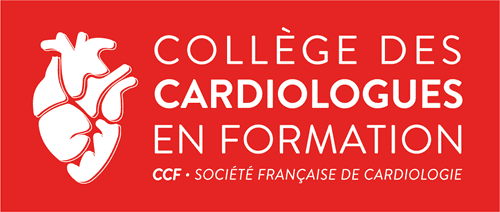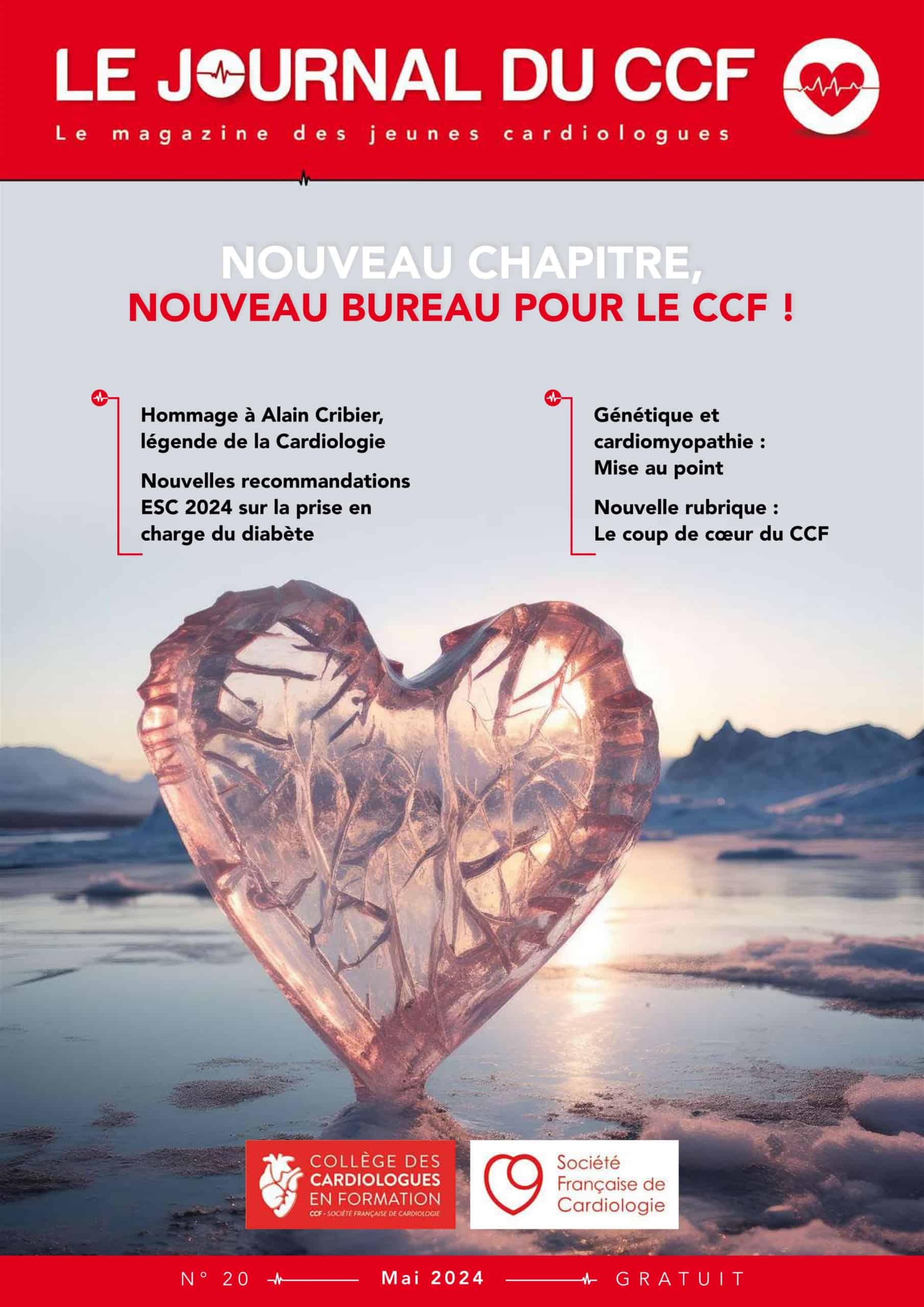Suivez nous sur les réseaux sociaux
Cet outil a vocation à informer, diffuser l’information auprès des jeunes cardiologues (internes, assistants, chefs de cliniques, jeunes praticiens, etc.), et faciliter les échanges.
Voici un aperçu rapide des sujets abordés dans cette publication :
Toutes nos publications
Une question ?
Publications
Prevalence and impact of recreational drug use in patients with acute cardiovascular events
Voici un aperçu rapide des sujets abordés dans cette publication :
Prevalence and impact of recreational drug use in patients with acute cardiovascular events
Théo Pezel, Jean-Guillaume Dillinger, Antonin Trimaille, Clément Delmas, Nicolas Piliero, Claire Bouleti, Thibaut Pommier, Amine El Ouahidi, Stéphane Andrieu, Benoit Lattuca, Reza Rossanaly Vasram, Damien Fard, Nathalie Noirclerc, Guillaume Bonnet, Marc Goralski, Meyer Elbaz, Antoine Deney, Guillaume Schurtz, Clemence Docq, Francois Roubille, Charles Fauvel, Thomas Bochaton, Victor Aboyans, Franck Boccara, Etienne Puymirat, Anne Batisse, Gabriel Steg, Eric Vicaut, Patrick Henry, for the ADDICT-ICCU Investigators
Heart, Volume 109, Issue 21, 12 October 2023, Pages 1608-1616
PMID: 37582633
DOI: 10.1136/heartjnl-2023-322520
Summary
Objective
While recreational drug use is a risk factor for cardiovascular events, its exact prevalence and prognostic impact in patients admitted for these events are not established. We aimed to assess the prevalence of recreational drug use and its association with in-hospital major adverse events (MAEs) in patients admitted to intensive cardiac care units (ICCU).
Methods
In the Addiction in Intensive Cardiac Care Units (ADDICT-ICCU) study, systematic screening for recreational drugs was performed by prospective urinary testing all patients admitted to ICCU in 39 French centres from 7 to 22 April 2021. The primary outcome was prevalence of recreational drug detection. In-hospital MAEs were defined by death, resuscitated cardiac arrest, or haemodynamic shock.
Results
Of 1499 consecutive patients (63±15 years, 70% male), 161 (11%) had a positive test for recreational drugs (cannabis 9.1%, opioids 2.1%, cocaine 1.7%, amphetamines 0.7%, 3,4-methylenedioxymethamphetamine (MDMA) 0.6%). Only 57% of these patients declared recreational drug use. Patients who used recreational drugs exhibited a higher MAE rate than others (13% vs 3%, respectively, p<0.001). Recreational drugs were associated with a higher rate of in-hospital MAEs after adjustment for comorbidities (OR 8.84, 95% CI 4.68 to 16.7, p<0.001). After adjustment, cannabis, cocaine, and MDMA, assessed separately, were independently associated with in-hospital MAEs. Multiple drug detection was frequent (28% of positive patients) and associated with an even higher incidence of MAEs (OR 12.7, 95% CI 4.80 to 35.6, p<0.001).
Conclusions
The prevalence of recreational drug use in patients hospitalised in ICCU was 11%. Recreational drug detection was independently associated with worse in-hospital outcomes.


